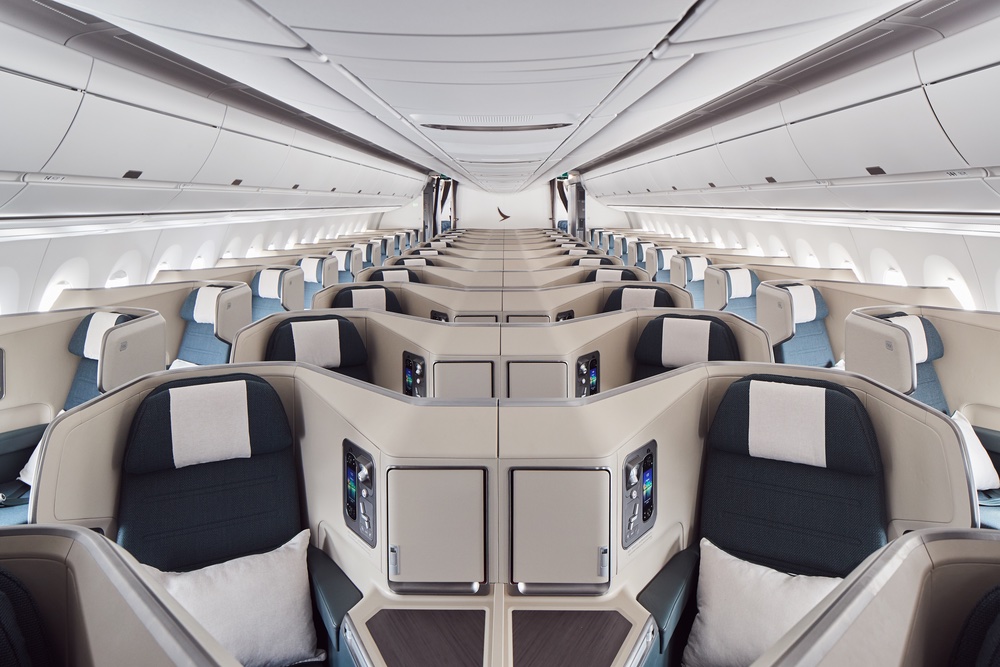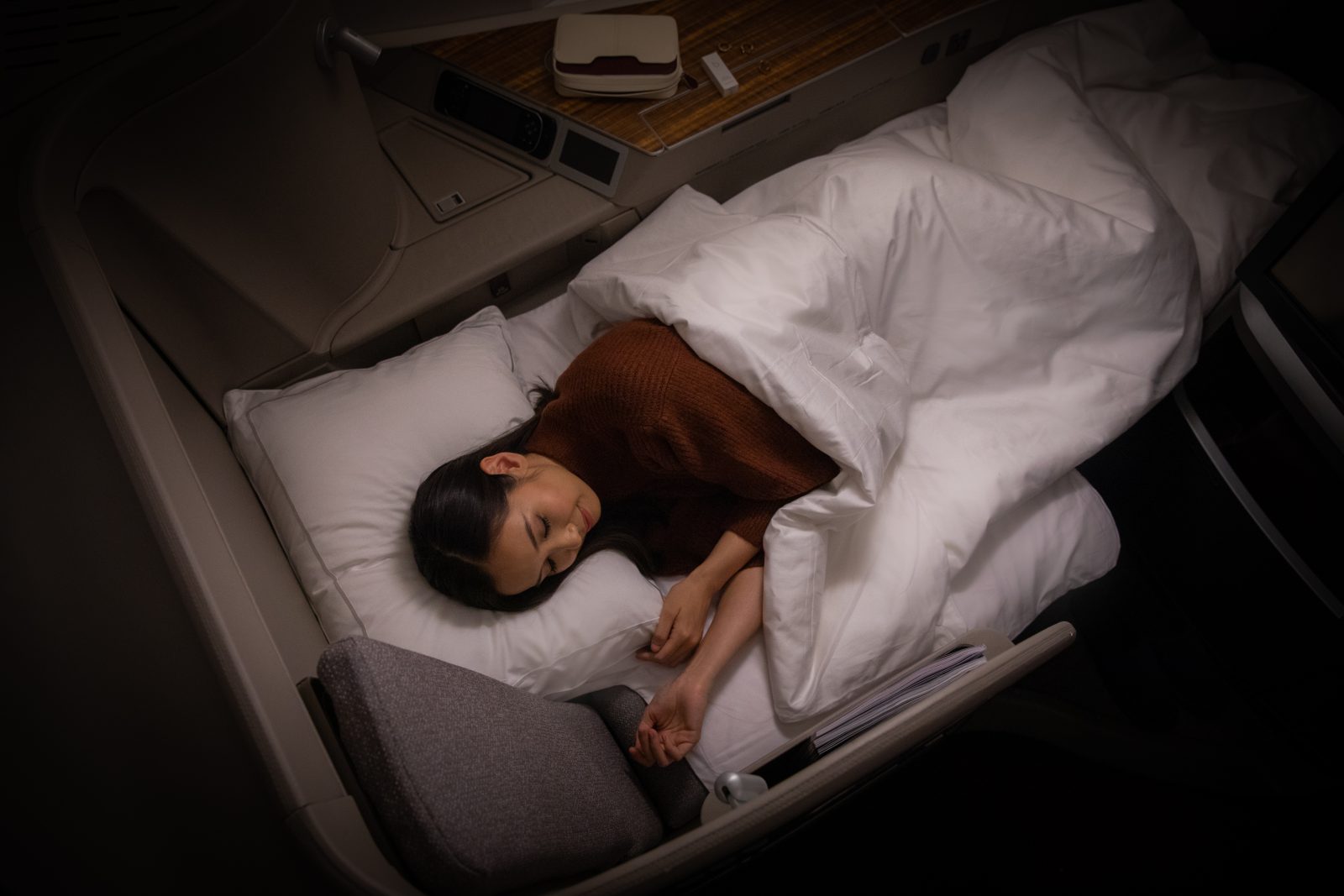Cathay Pacific allows First and Business Class passengers to remove their face masks for hours at a time according to an internal memo recently sent to the airline’s flight attendants. The face mask exemption only applies, however, when premium passengers have their seat in the fully flat position and are sleeping according to the memo which was first reported by Executive Traveller.
Confirming the policy, a spokesperson for the Hong Kong-based airline said it allowed the exemption because “seats in first and business class are more spacious with partitions, and passengers are exempted when lying flat for sleep.”

A statement from the airline continued: “The latest additional guidelines are designed to help our crew understand the circumstances under which mask wearing is exempted. Passengers are required to wear masks at all times except during the short period when they are eating and drinking, and when proper social distancing cannot be maintained.”
The exemption has been in place since last May but not even cabin crew were aware of the policy. Sources claim it only came to light during a recent incident onboard a flight when cabin crew attempted to escalate an issue with what they believed was a non-compliant customer.
The requirement to wear a face mask in Cathay Pacific’s Economy and Premium Economy cabins will also still apply even if the passenger load is light and customers are socially distanced.
In December 2020, Cathay Pacific reported an average passenger load factor of just 18 per cent meaning that passengers on many flights could have maintained a distance from people who were not in their own bubble.
The International Air Transport Association (IATA) maintains that it is difficult for COVID-19 to spread on an airplane in part because of the design of seats which creates a barrier between people sitting in different rows.
Both Cathay Pacific and IATA also point to onboard HEPA filters that are “capable of filtering 99.9999 per cent of dust particles, including virus and bacteria.” Recent studies have backed up claims that an airplane cabin is safe but these findings are based on 100 per cent face mask compliance.
The latest studies have not investigated the impact that new highly transmissible variants of the COVID-19 virus might have on transmission risk in an airplane cabin. Both the UK and South African variants could be up to 70 per cent more transmissible than the original novel Coronavirus. Vaccines have been shown to have lower efficacy on the South African variant.
The risk of these new variants has been deemed so high that the Hong Kong government is pushing ahead with plans to force all aircrew into hotel quarantine for 14-days and then undergo a further seven days of medical screening whenever they return to Hong Kong from abroad.
The rules will apply to arrivals from every country apart from China and Taiwan. Passengers must quarantine in designated hotels for a full 21-days. Cathay Pacific is drawing up contingency plans to keep on operating with the strict new rules but has warned that it might need to slash its schedule by a further 60 per cent.
Cathay Pacific flight attendants currently have to wear face masks, gloves and goggles whenever they are working.
Main Photo: Cathay Pacific
A previous version of this article stated that Qatar Airways allowed customers travelling in its QSuite Business Class seat to remove their face masks if they wished. Qatar Airways has confirmed that it has updated its policy and now requires all passengers to wear a face mask regardless of cabin class.
Related
Mateusz Maszczynski honed his skills as an international flight attendant at the most prominent airline in the Middle East and has been flying ever since... most recently for a well known European airline. Matt is passionate about the aviation industry and has become an expert in passenger experience and human-centric stories. Always keeping an ear close to the ground, Matt's industry insights, analysis and news coverage is frequently relied upon by some of the biggest names in journalism.








